The lunar new year is one of the most important celebrations in the Chinese calendar. The people of Taiwan, Hong Kong, and Macau also celebrate it.
During this celebration, people typically throw new year parties, enjoy new year cake and hang new year decorations. People also celebrate the lunar new year in Japan and Southeast Asia. However, the celebrations in these regions are slightly different from those in China.
If you’re planning to celebrate the lunar new year with your loved ones in China or if you’re from a Chinese background planning to celebrate it at home, you’d be fascinated to know about its history and the medical impacts it has on the community.
We’ll tell you about the history of lunar new year celebrations and their impact on the community. We’ll also discuss The impact of the Lunar New Year on Chinese healthcare and medicine and tell you what traditional treatments are used during these celebrations and their medical benefits.
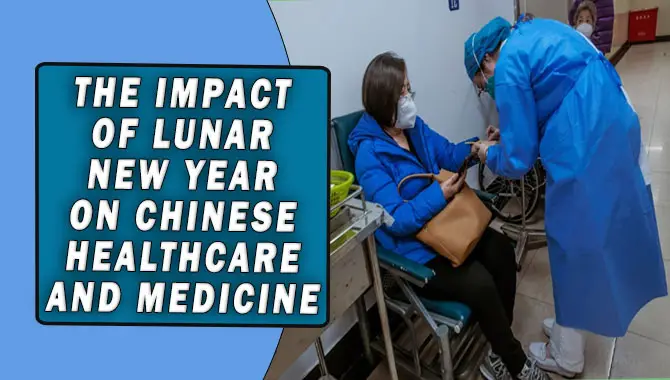
What Is The Impact Of The Lunar New Year On Chinese Healthcare And Medicine?
The year-end holiday season (commonly known as Lunar New Year) is when people come together to celebrate. This year-end holiday period is also known as the “Spring Festival” in China and involves various lifestyle changes, such as overeating, excessive drinking, irregular sleep, and overexcitation.
Some health officials have warned about the possibility of the virus spreading during the traditional travel season due to the large crowds of people traveling back home for the lunar new year celebrations.
We recommend that travelers awareness of their surroundings and practice safe behaviors during this time. We advise travelers to get a booster shot for the flu and bring fever medication, cough medicine, and a pulse oximeter to measure blood oxygen levels. Additionally, travelers should be mindful of their health when traveling overseas during lunar new year celebrations.
Preparation For Chinese New Year
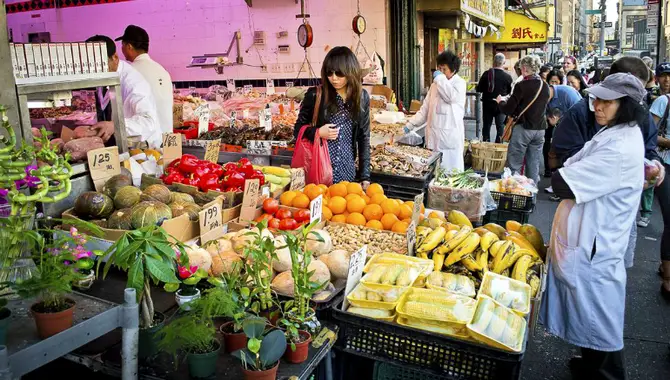
The lunar calendar determines the Chinese New Year, which usually falls between January 21 and February 20. Businesses should plan for other Chinese holidays, such as Qing Ming Jie and the Dragon Boat Festival, to ensure they are ready for the upcoming holiday season. T
he festival has a long history dating back more than 3,500 years ago. It is an important celebration for families to gather and celebrate together. To ensure smooth operations throughout the year, businesses should plan to prepare for the Chinese New Year. By taking steps now, businesses can ensure they are ready for the most important holiday.
The Four Emperors System
The Four Emperors System is a healthcare tradition adopted during the Tang Dynasty and has since been used to treat various health problems in China. This system is based on balance, harmony, and transformation and involves using commonly used Chinese herbs and therapies.
During Lunar New Year, Chinese people take time to reflect on their health and well-being, and this tradition has led to the development of many traditional Chinese medical treatments. The Four Emperors System is still used to treat various health problems.
The Traditional Chinese Medical Calendar
The lunar cycle ranges from a new moon to a new moon. Is primarily based on the traditional Chinese medical calendar. During the Chinese New year, patients are admitted to internal medicine departments. Have a higher mortality risk than those admitted on weekdays.
This may be due to the increased stress and social disruption during the traditional. New year holiday and medical complications caused by the high-caloric intake of Chinese cuisine. Millions of people also travel during the Lunar New Year holiday, raising concerns about potential. Outbreaks of infectious diseases in rural areas.
Researchers have conducted studies to identify the underlying causes. Of higher mortality risk during the new year and develop strategies to improve patient outcomes. The date of the Chinese New Year is determined by the lunar calendar. Thus falling between January 21 and February 20.
Effects Of The Lunar New Year On The Chinese Economy
Hundreds of millions of people travel to their ancestral villages to celebrate Chinese New Year. The largest holiday of the year. The holiday can disrupt production and shipping schedules for up to three weeks, leading to increased freight costs. During the pandemic, China’s government incentivized people to stay home. Putting the brakes on holiday travel which affected the Chinese economy.
The Lunar New Year is also a prime time to switch jobs. And many workers still need to return to work. This can significantly impact companies as they try to adjust their operations and personnel ahead of new year-related deadlines. In some cases, this delay in production can lead to significant losses for businesses and threaten their ability to meet new year-related deadlines.
Ushering In The Lunar New Year
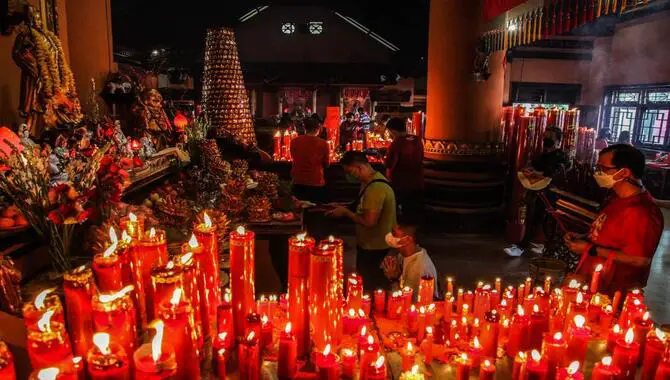
Chinese New Year, or Lunar New Year, is one of the most important holidays in China. People celebrate it on February 14 each year and mark the beginning of the new year. The holiday is a time for families to reunite and celebrate together. It is also a time for Chinese people to honor their ancestors and reflect on their past years.
While celebrating Chinese New Year, people often give money to charity or visit family members. Many traditions are associated with this holiday, such as exchanging gifts and eating special foods. However, the celebrations may affect some Chinese healthcare and medicine practices.
People start planning for the new year ahead as the Chinese New Year celebrations end. This year’s new year often starts with making resolutions to improve one’s health or success at work. In addition to making new year’s resolutions, it’s important to incorporate healthy lifestyle habits into one’s daily routine. This can include eating a healthy diet, exercising regularly, and taking care of one’s health-related needs, such as getting exercise and medical check-ups.
Impact On Chinese Healthcare
The Lunar New Year celebration is a significant event for the Chinese community. It is a time when families come together and celebrate the passing of the year and the arrival of new opportunities and possibilities. The holiday also has an important spiritual dimension, with people practicing traditions such as giving gifts and hosting parties to honor their ancestors.
People often accompany the celebrations with traditional practices like cupping therapy, believing it helps treat various ailments. The impact of the Lunar New Year on Chinese healthcare goes beyond just celebrating the holiday. It has also had an impact on how people view traditional medicine. Generations have passed down ancient traditions and stories that have rooted many traditional practices.
These practices have helped shape many communities’ identities worldwide, and it can be difficult for them to see them replaced by modern medicine. But with the rise in the popularity of alternative medicine, people may see these traditions being lost or forgotten and turn to Western medicine instead.
The impact of the Lunar New Year on Chinese healthcare can help keep these traditions alive by encouraging people to understand that there is no one-size-fits-all approach to health, and they should continue to seek out experts who can help treat their specific needs.
How To Prepare For Lunar New Year In China?
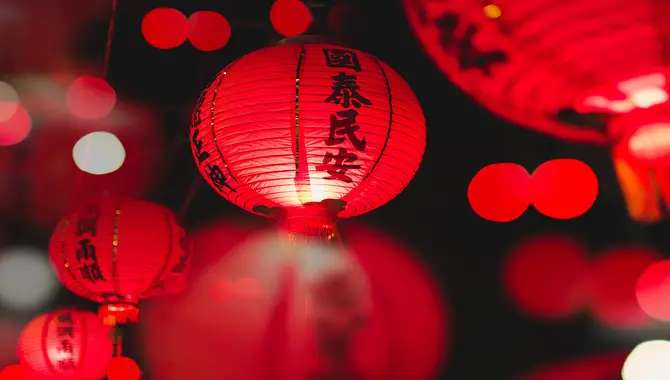
Prepare yourself if you plan to be in China during the Chinese New year for the celebrations. The lunar calendar determines the lunar year, making it difficult to predict when the festival falls on the year. The Chinese New year is when people celebrate with family and friends. People have celebrated this important festival in China for over 3,500 years.
It characterizes by many celebrations, including the offering of new year’s greetings and the passing of the year as well as eating chimes his (a special kind of dumpling), zongzi (southern-style glutinous rice balls), jiaozi (dumplings made from flour and water) and goong posh (apples dipped in sugar).
People also indulge in overeating, excessive drinking, irregular sleep, and overexcitation during this period. Due to these factors, it is important to be aware of medical concerns during the festival. Seek medical care promptly to stay healthy and avoid emotional stress as much as possible.
What Are Some Of The Traditional Treatments That Are Used During The Lunar New Year?
Many people are eager to try traditional medical treatments during the Lunar New Year. These medical treatments focus on restoring balance and harmony in the body. Some of the most popular traditional medical treatments during the lunar new year include acupuncture, Chinese herbs, and massage.
Many hospitals and clinics close for a few days during the lunar new year, allowing patients to take advantage of these medical treatments. The medical care system is often overcrowded during the lunar new year, making it difficult for patients to get timely treatment. Hospitals and clinics are also likely to be busy during this period as people seek out alternative medical treatments for health issues.
What Is The History Of The Lunar New Year In China?
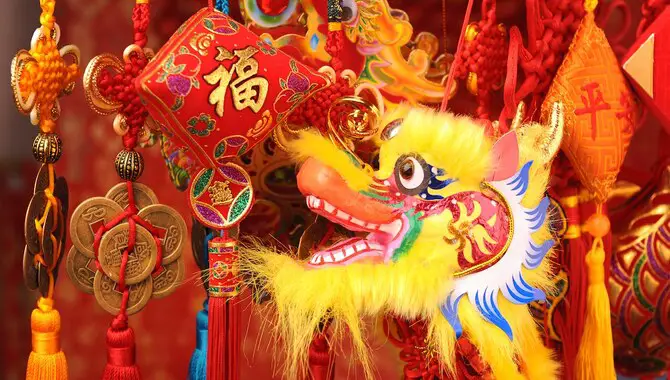
Lunar New Year, also known as Chinese New Year or Spring Festival, is a festival celebrated by the Chinese each year to celebrate the new year. We will hold the festival on February 16-19, 2018. Nian first appeared in the Zhou Dynasty (1046–256 BC), and it became a custom to offer sacrifices to ancestors or gods and to worship nature.
In the Han Dynasty (202 BC – 220 AD), you fixed the festival date (the first day of the first month in the Chinese lunar calendar), and certain celebration activities became popular, such as burning bamboo to make a loud cracking sound.
The lunar calendar determines the festival, usually sometime between January 21 and February 20. This lunar calendar numbers the years according to the year of the lunar cycle, which counts national events. This means that new year celebrations vary from year to year, depending on lunar cycles.
The festival includes traditional activities such as eating glutinous rice dumplings called “hong bao” with family members and friends, gift-giving, ancestor worship, and fireworks. It is a time for people to be together and enjoy fellowship, laughter, and family happiness.
What Are The Main Medical Concerns During The Lunar New Year?
Chinese people’s biggest medical concern during the lunar new year is overeating, excessive drinking, irregular sleep, and overexcitation. These issues are associated with the celebrations of the lunar new year and can lead to medical issues such as obesity and alcohol abuse.
To contain the outbreak of these health concerns, the Chinese government extended the lunar new year holiday by two days and quarantined people with chronic obstructive pulmonary disease (COPD).
People infected with the chikungunya virus can cause a perfect storm of health problems. Vaccination has not eliminated the risk of the chikungunya virus during the holiday travel period. Elderly, under-vaccinated people in rural areas with rudimentary healthcare are particularly at risk as they may be unable to access healthcare services.
What Are Some Common Medical Conditions That Are Likely To Increase During The Lunar New Year?
Some common medical conditions likely to increase during Lunar New Year include sinusitis, ear infections, cough, and respiratory tract infections. Increased airborne allergens and germs in the air cause these conditions during this time of the year. Another common condition is indigestion and heartburn.
This is because many people eat more spicy foods and less salt during this festival to commemorate the symbolic importance of the red color associated with good fortune. Doctors can help with these issues by prescribing medications that can reduce inflammation and irritation. Overall, healthcare professionals should be aware of some common conditions to be ready for when patients experience them during Lunar New Year.
Conclusion
The new year celebrations in China are a time for families to gather with friends and colleagues. And celebrate the new year. Families start new traditions in the new year, which they pass down through generations. The celebrations include feasting, gift-giving, and visits to temples. There are also some traditional medical treatments that people in China use during the new year celebrations.
Here we look at the history of lunar new year celebrations in China. Some of the traditional medical treatments used during the celebrations, as well as their economic impact. People traditionally view the year of the snake as a time of danger and obstacles.
However, the new year also represents new beginnings and new opportunities. We’ve discussed The impact of the Lunar New Year on Chinese healthcare and medicine. To stay productive during the year of the snake, be diligent, and be prepared to face new challenges. With the right attitude and preparation, you can overcome any obstacle.
Frequently Asked Questions

I’m a writer and blogger who loves to talk about entertainment, culture, and relationships. I love to share my thoughts and insights on these topics, and I’m always looking for new ways to engage with my readers. I’m also a big fan of learning new things, so I’m always exploring new areas of interest.




